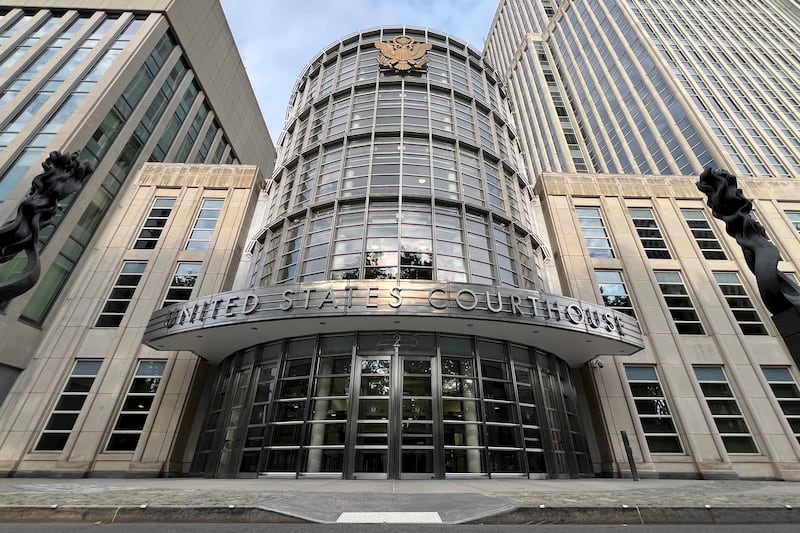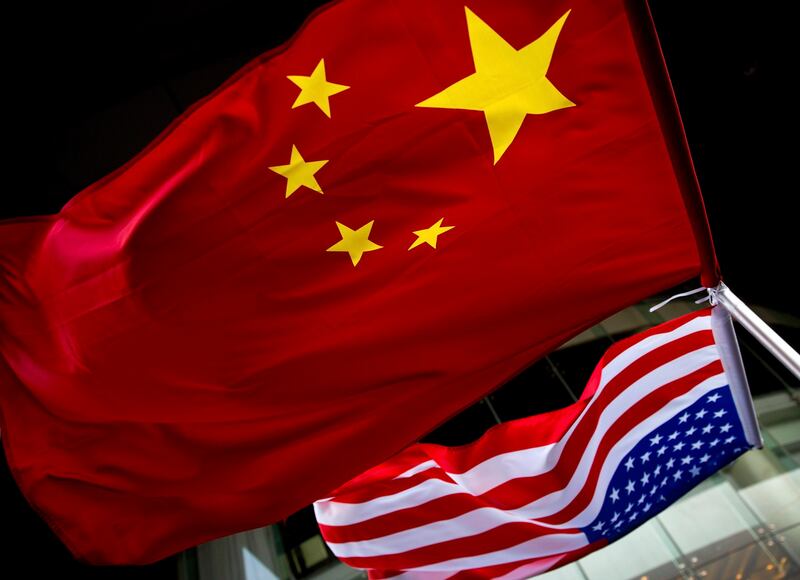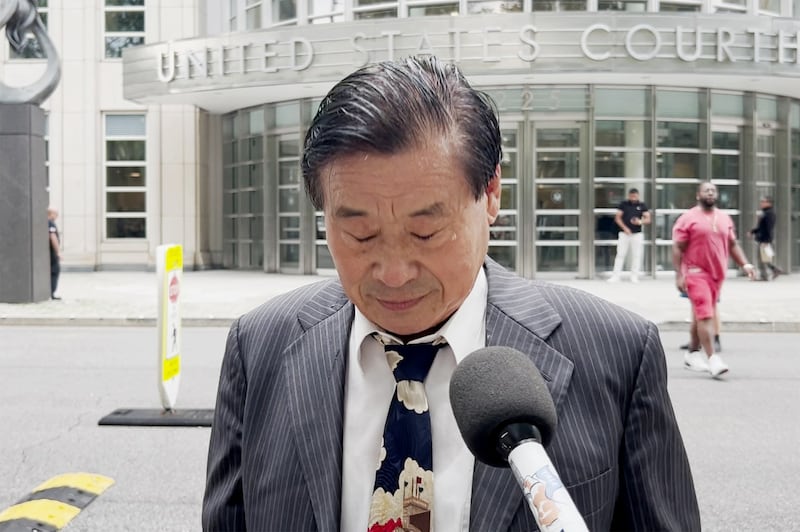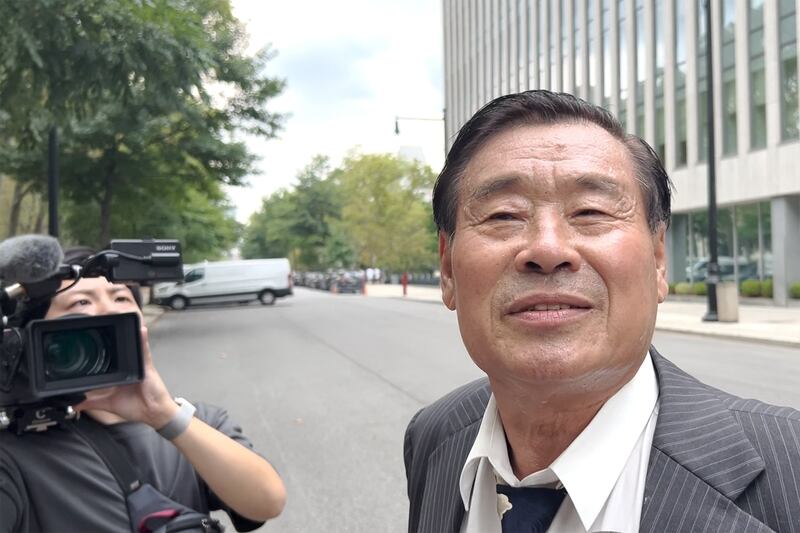The case against Shujun Wang, a former academic in Flushing, Queens, unfolded in a Brooklyn courthouse in late July and early August. Federal prosecutors presented evidence showing he had been working for the Chinese Ministry of State Security intelligence service for years, providing the MSS with information about the pro-democracy movement in the United States.
The evidence in the trial provided insights into the tactics Chinese intelligence officers use to spy and “to silence, harass, intimidate people right here in New York,” as one of the prosecutors, Ellen Sise, said.
Here are some things we learned about their methods from the court case.
One: Chinese intelligence work can be a long family affair
According to prosecutors, Wang was first approached by Chinese intelligence when he encountered an officer who worked for Qingdao State Security Bureau, a regional branch of the MSS, while he was visiting his hometown, Qingdao, in 2003. The meeting took place because of a family connection. The officer had gone to school with Wang’s nephew and was also a neighbor of the Wang family.

Years later, in 2016, Wang met two other officers through his daughter and son-in-law, who co-owned businesses in Hong Kong. The officers worked at a different MSS branch, in Guangdong province. Wang’s daughter and son-in-law had turned to the officers for assistance in the past and had asked them for help in recovering money after a business transaction had gone wrong.
These interactions would not have seemed out of the ordinary for Wang, as the intelligence officers' connections to him were a form of guanxi – cultivated relationships based on mutual obligations, where favors are expected to be repaid. According to one of the government’s witnesses, an intelligence officer had brought “business opportunities” to his daughter and son-in-law, and in fact, on Chinese holidays, Wang’s daughter gave the officers red envelopes of cash as payments for favors, kickbacks or just to maintain their close ties.
Two: The long arm of China could be felt in a Brooklyn courtroom
Throughout the trial, the courtroom was tense. A law student in the courthouse made jokes about spies: “If the CCP sent someone, you’d never know it,” he said, referring to undercover agents from the Chinese Communist Party.
Defense lawyer Kevin Tung said that people in his office, a group that includes many ethnic Chinese, had expressed concerns about being associated with the case. On the third day of the trial, a juror asked to be excused because she was worried about her family in Taiwan.

Three: Methods used by the Chinese intelligence service can be surprisingly basic
The “intelligence reports” Wang was giving to his handlers were often delivered through WeChat messages and phone calls, or via email.
It was revealed during the trial that one of the MSS intelligence officers met with Wang in Guangdong to help him set up an email account where he could write reports that he would save as “drafts” so that his handlers could later log in to read them. Afterwards, Wang and the agent went on a sightseeing trip of Foshan.
For one of the accounts, the intelligence officers devised a password based on the date of their meeting – February 17, 2016. And so, the password read, “20160217-“

Four: Chinese spies are also on a budget
One of the officers told Wang to book his roundtrip ticket to China early so he could get a better rate. “You should arrange the trip and purchase the airline tickets in advance to get a discount,” wrote the officer.
“Boss He hopes you can stay in Hong Kong a bit longer after the Spring Festival. Boss He said they would like to cover your plane ticket.” He added a smiley emoji.
Wang responded, “Will comply!”
SEE RELATED STORIES
[ Historian. Activist. Spy? Opens in new window ]
[ US historian found guilty of working as Chinese spyOpens in new window ]
[ ‘Secret’ New York police station is mere sliver of Beijing’s US harassment pushOpens in new window ]
Five: Prosecutor links United Front and Overseas Chinese Affairs to MSS operations
During the trial, the prosecutors seemed to show a closer connection between the work of the officials from the Overseas Chinese Affairs with those of the MSS intelligence officers.
FBI agents searched Wang’s house and found contact information for individuals working for the Qingdao Overseas Chinese Affairs Office and the Chinese Consulate in New York, including their private phone numbers.

Expert witness Alex Joske testified in court that the MSS, the Overseas Chinese Affairs Office and the Chinese consulates work together under the United Front Work system. This system is the leading body responsible for coordinating and carrying out the Chinese Communist Party’s influence work.
“The Overseas Chinese Affairs Office, in particular, focuses on studying and building relationships with ethnic Chinese who reside overseas or are connected to the international community.” He explained that the MSS prefers to select targets from existing Overseas Chinese Affairs networks and cultivate them into assets.
Edited by Boer Deng.
